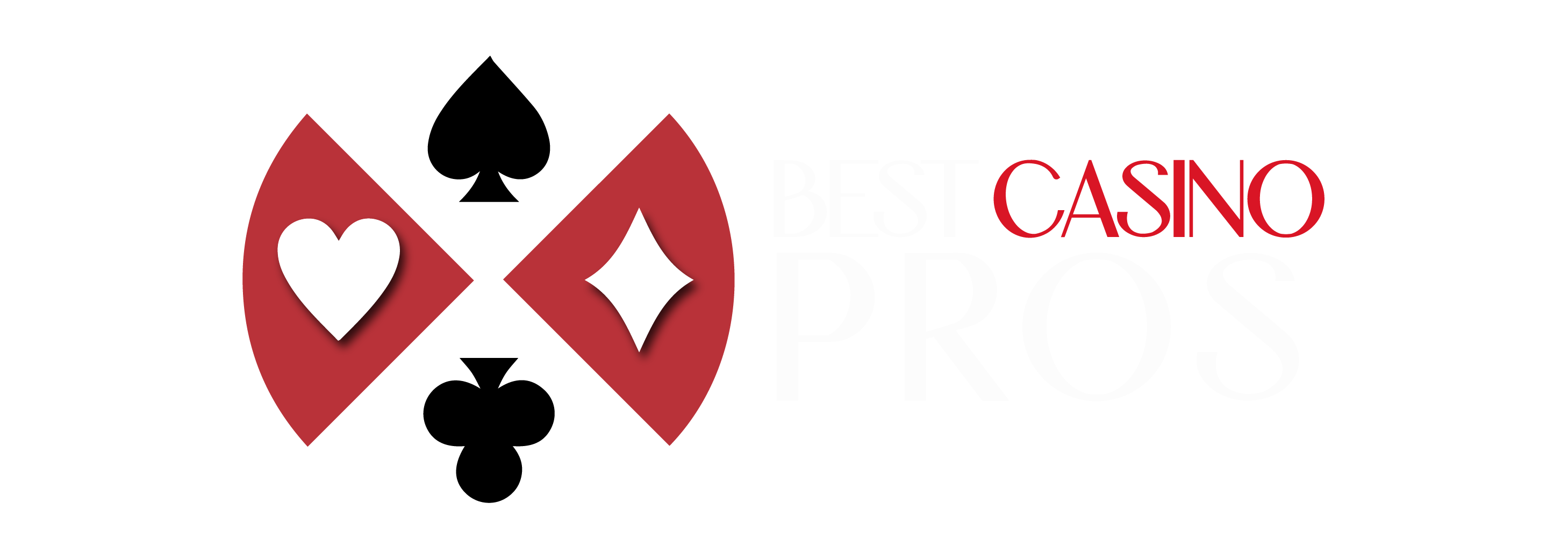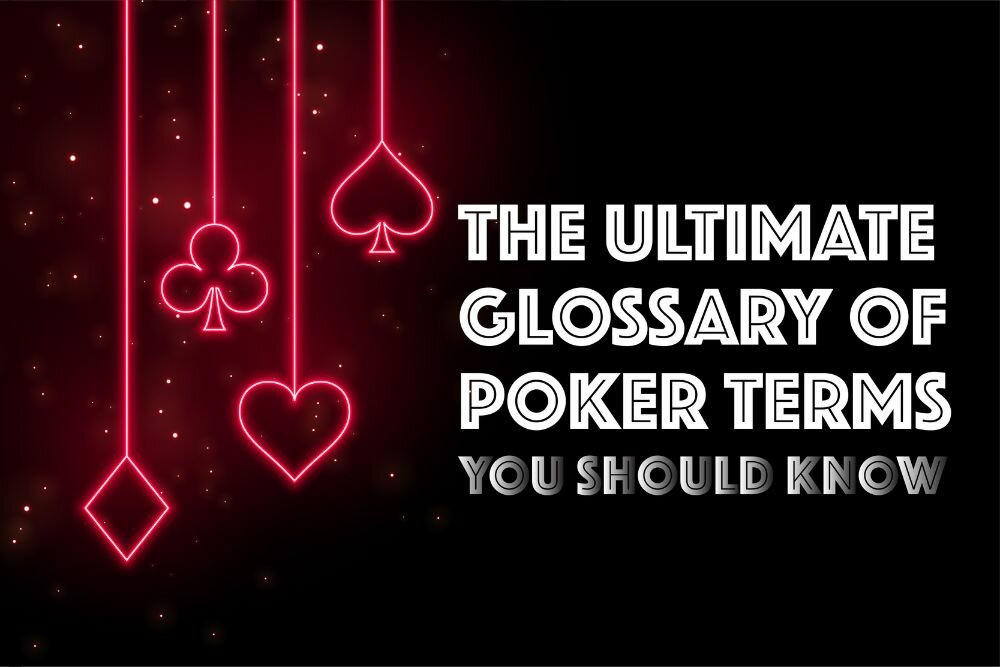Poker is one of the favourite casino games of all time. Since the game has become a sensation on online casinos, helping players make money, a new group of people is always involved in learning the game.
When you play poker, the cards are only a small portion of the equation! To improve your game, you need to know more about poker terminology. A lot of the words and phrases in poker have made their way into everyday conversations. From calling someone’s bluff to checking to see how many cards are left in the deck, poker players have a lot of terminology to know.
This article showcases the ultimate glossary of poker terms. This is Rich-Casino.biz - all you need to learn once you are determined to start playing poker. Learn the poker language before you step into a casino offline or online.
Build the foundation and look forward to creating the castle of your poker dreams. This ‘Poketionary’ is the ultimatum of the resource you were searching for! Well,
The Ultimate Glossary of Poker Terms
All in
Betting all chips the player has in front of them.
Ante
A small part of a bet that each player contributes to seed the pot while starting a poker hand. Most Hold ’em games do not include an ante; they use “blinds” to get primary money into the pot.
Backdoor
A term used to indicate a draw that needs two rounds in flop games or more rounds in draw games to complete.
Bad Beat
A circumstance when a superior hand loses to an inferior one is termed a bad beat. One such instance is when two players have pocket pairs, for say, 5s and 10s, and get all chips in the middle of the table prior to the flop, and pocket 5s reach out on top by hitting a set or straight.
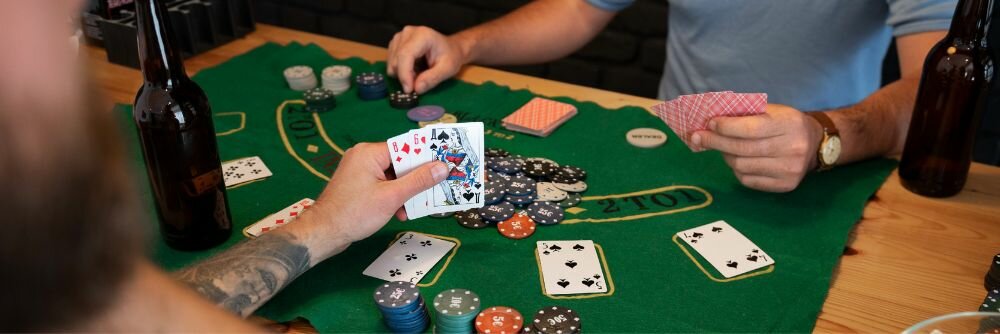
Balancing
Playing various hands from different positions, your play doesn’t become too uniform. The objective of balancing is to toss your opponents off and make it challenging for them to put you on a hand. It also means playing the same types of hands in different ways to accomplish the same goal.
Bankroll management
Handling your poker funds wisely gives you the best opportunity to win in the long run. The initial objective of bankroll management is to fight the variance and persist through unavoidable periods of bad luck.
Bet
The first chips kept in the pool on any street. Pre-flop, the short blind would be categorised as the first bet.
Big Blind
The bigger of the two blinds commonly used in a game of Hold ’em. The big blind is usually a full first-round bet.
Blank
A board card which doesn’t appear to affect the standings in hand. In case the flop is A-J-T, then a turn card of 2 will be evaluated as a blank.
Blind
A forced bet or a partial bet placed by one or more players before the cards are dealt. Typically, players put blinds in immediately to the left of the button.
Bluff
To bet or raise holding a hand the player consider to be weaker than your opponent, to get them to fold their stronger hand.
Boat
AKA full house is when three cards of the same value are merged with two cards of the same value, three of a type and a pair.
Bounty
A special reward that is placed on a player to award anyone who busts the said player. Specific tournaments feature a bounty format, where a part of the prize pool is put aside for bounties, and one gets immediately credited with a bounty each time they bust a player.
Brick and mortar
A term used to define real, old-school casinos and poker rooms, opposite to their online counterparts.
Bring in
A forced bet in stud format of poker games. Depending on the type of the game, either the highest or the lowest upcard has to assign the bring-in.
Broadway cards
Every face card and all 10s involved in creating the Broadway straight. (10JQKA)
Bubble
The bubble is the final player to be eliminated from a poker tournament before getting to the money payouts. In major tournaments, such as WSOP Main Event, bubble players occasionally receive a consolation prize.
Burn card
A card that is drawn from the top of the deck before dealing the upcoming street in flop games. In old days of poker, it was used to control cheating by reserving the deck and adhering to the rules.
Call
Verbally declaring your intention to match the bet made by a player making the action before you.
Calling the clock
Sometimes in a poker tournament and less often in money games, other players can call the clock on a player if they take excessive time to act. Once the clock call is done, the player is given 60 seconds to act, and if they fail to make an action, his hand is announced dead.
Cards speak
This poker term is also sometimes used in regular conversations. Let the cards speak is showing the hands to determine who wins. Shown cards replace any verbal claims.
Cash-out
This means getting up from a game of poker and trading one’s chips for real money. In online poker, this means withdrawing a part or all of the winnings to the bank account or e-wallet.
Check
To declare verbally or by a bodily gesture that you wish to pass the action to the next player in the order without betting oneself.
Chip dumping
A strategy that is considered against the rules and spirit of poker, where one player purposely loses their chips to another player at the table to increase their stack. Since chip dumping makes little sense in cash games, it is primarily used in tournaments and sit-and-goes.
Chip race
A process in a poker tournament by which shorter denomination chips are taken off from the play after they are no longer required at the tables.
Click raise
This term comes from online poker, meaning making the minimum raise after another player placed the bet.
Cold deck
Traditionally, the term cold deck was used to define a rigged deck of playing cards organised to make it harder for a player who is not in on the plan to win. In new-day poker, it is defined as a run of bad cards and bad luck.
Collusion
A strategy of cheating where two or more players at the same table communicate the information regarding their hole cards and use other underhanded tactics to grab chips or money from other clueless players.
Coin flip
A condition where two hands have roughly the same odds of winning, for instance, AK versus pocket 10s.
Community cards
Cards used by every player with involvement in a hand, such as a turn, flop, and river in Texas Hold ’em.
Connectors
Cards of successive rank or proximate in ranking, such as 67 or 68.
Continuation bet
A bet placed on the flop by the initial preflop raiser in a try to win the pot without any further resistance. Sometimes a continuance bet is a bluff, while sometimes, it is placed with a hand that has good chances of being the best at the moment, in which case it safeguards the hand and further creates the pot.
Cooler
A situation where two players hold hands so firm that neither of them can really get away. One general instance of a cooler is pocket Aces versus pocket Kings, where the player who holds Kings is extremely likely to lose the most unless they get fortunate.
Crying call
Calling a bet with a hand with very slight chances of standing the best. At times, a player does this expecting to catch an improbable bluff, or due to the chances they are getting are too compelling to pass.
Cutoff
A place at the table to the direct right of the dealer.
Dead hand
A hand that is no more supposed to participate in the pot. A hand can be proclaimed dead for different reasons, like revealing one’s cards in a tournament, touching the muck, or not making actions within the allocated time once the clock has been called are a few of the most general instances.
Dead money
Money or chips put out in a pot by players who are no more actively participating in the hand. It also refers to those chips put in by players who have not yet folded but obviously have a weak hand. For instance, if six players attempt to go through preflop, one could make a massive raise from the big blind to make everyone fold and collect the dead money.
Dealing twice
This pattern is only faced in cash games, in which two or more players, once moving all in, decide to run an entire board, turn and river, or just river twice. This move is often made by professional players to decrease the variance.
Dealer’s choice
Most seen in home games bet there are a few tournaments and casino cash games that offer this variation. As the dealer button rolls beside the table, the player in the dealer’s position gets to opt for the game for that specific hand.
Donk bet
A bet placed by the player who is supposed to act first and who just called the opponent’s bet on the past street. The term derives from the fact that this form of bet is typically made by amateur players who are unsure how to continue in hand, as more seasoned players generally check to the player who took the initiative. However, it possesses a strategic value in specific conditions.
Door card
In flop games, such as Texas Hold ’em and Omaha, the first seeable card on the flop. It is also periodically called a window card. In the stud-format of poker games, this is the first visible card of the player.
Downcards
Those cards which are dealt with its face down, known just to the players they have been dealt to.
Drawing dead
This term means that that player has no potential outs to win the hand. A good instance of this situation where a player is drawing dead is when they have the lowest end of a straight against the player having the highest end of the same straight. In case the board came 4 5 6, the player with 2 3 can only expect a chop. Once the turn comes, any card other than 7 or 8, the player with the lower end of the straight is drawing undoubtedly dead as they have no possible outs that could help them win or chop the pot.
Drawing thin
Opposite to drawing dead, a player who draws thin has a few out that can protect him, like in a situation of a set over set. The player holding the lower set can still discover that one card in the deck to create quads, but their chances are terrible.
Dry board
This term is used to define the texture of the board in flop games. A dry board is the kind of board where there are not many possible draws that players could be tracking, such as 2c 6s Jh. With no options to straight or draw, this would be an incredibly dry board.
Expected value (EV)
The term defines anticipated long-term profit in specific games, tournaments, and more. It is a complex variable including many factors, but when players talk about EV, they generally try to justify their earning possibilities. In case a game is called +EV, it denotes that it has a positive earning potential.
Exposed card
A card from the deck or a player’s hand that is being fortuitously turned face up. When it is about exposed cards, the rule says that if a player saw it, each player in the game should be shown too. So, no one profits from the additional information that others are unknown of.
Family Pot
A pot where all (or the majority) of players call prior to the flop.
Fast
This refers to playing a hand aggressively, betting and raising the most as possible.
Favourite
A hand in poker that is statistically preferred to win.
Fish
A term referred to a lousy poker player, AKA donkey. A fish is a player who is either a beginner or simply does not care to play the game the way it is believed to be played, making him an effortless prey for more seasoned players at the table.
Flop
The initial three community cards placed face-up overall.
Fold
To renounce any odds of winning the existing pot in the game. It means to lay down a hand or throw a hand in rather than calling or raising a bet.
Foul
A hand that might not be played for one reason or another. A player who has a foul hand may not make any declaration on any part of the pot.
Free Card
A turn or river card on which a player doesn’t have to place a bet because of the play before in hand or because of their reputation with their opponents. For example, if a player is on the button and raises when they flop a flush draw, their opponents might check them on the turn. If they make their flush on the turn, they can bet. If the player doesn’t get it on the turn, they can also check, seeing the river card for “free.”
Free Roll
A player has a chance at winning an entire pot when they are currently tied with another player. For example, presume a player has A-Q of clubs, and their opponent has A-Q of hearts. The flop is Q-5-T with two clubs. The first player is tied with the opponent now but is free rolling, as you could win the entire pot, and your opponent can’t. If there is no club coming, the player can split the pot with the opponent; if it comes, the first player wins the entire pot.
Grinder
A person whose earning source is poker, so plays the game full time, frequently participating in small buy-in games in which they earn small but constant profit. Also, it is the nickname for one of the famous modern poker players, Michael’ The Grinder’ Mizrachi.
Gutshot
AKA the inside straight draw, it is a form of a draw that could only be sufficed by four instead of eight cards. For instance, if a player holds 67 on a 3 4 K board, they have a gutshot draw because only four 5s will complete their straight.
Hand for hand
This term is used to define a phase of the tournament just before the bubble and wherein all tables should first complete one hand before moving to the next one. This is performed so that players having fewer stacks cannot intentionally stall the game until someone busts at a different table.
Hero call
This means making a call with a relatively weak hand which does not have the odds to win against any legitimate hands, attempting to decide the bluff of the opponent.
Hijack
The standing at a table directly right to the cutoff or two to the dealer’s right.
Hole cards
The hidden cards of a player only known to himself and not disclosed to anyone else until the showdown phase.
H.O.R.S.E.
An abbreviation for poker game comprises five rotating games: Hold ’em, Omaha, Razz, Seven Card Stud, and Seven Card Stud High-Low.
Implied odds
Sensed potential chips or money a player expects to pull from their opponent if they finish their draw.
In the money (ITM)
A poker tournament’s phase where every remaining player is guaranteed to acquire cash prizes.
Isolation raise
A term that defines a raise created in a try to separate a weak or out-of-position opponent and push all other players out of the pot.
Juice
AKA rake, the money gathered by the house that is the casino or other establishment, in exchange for hosting the games. In tournaments, the juice is yielded together with the participation fee. On the other hand, in cash games, it is settled for each pot based on the money in the pot.
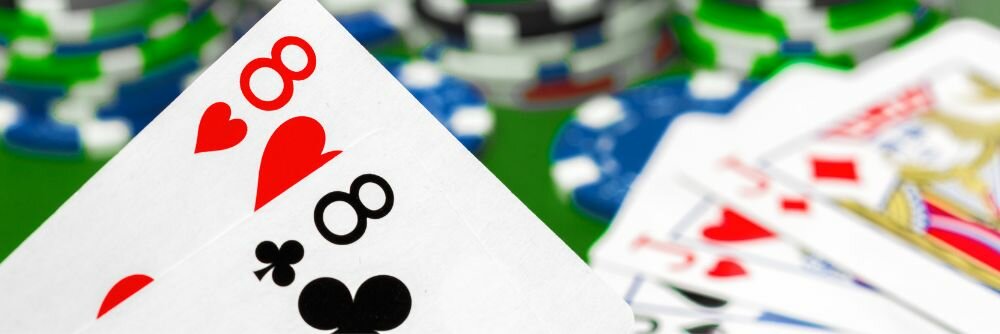
Kicker
A side card in the hand of a player that does not create the hand itself but could work as a tie-breaker. For instance, if two players hold two pairs, Aces and Sevens, a kicker is conferred to decide who wins. The player with the higher value of the kicker card would be declared the winner of the pot. The traditional poker hand rankings are used, like Aces on top and deuces on the bottom.
LAG
An abbreviated version of loose-aggressive, which describes a playing style that concerns playing a vast number of hands, with plenty of betting, raising and re-raising.
Limp (in)
This term means getting involved in the pot by calling out the amount of big blind in flop format games or other least bet.
Live one
The term is similar to fish or donkey, as we discussed above. A player considered an underdog in the recent game and is foreseen to lose unless they get fortunate.
Maniac
A very easygoing and aggressive player who plays even more hands than an average LAG. A maniac generally gets involved in almost every pot and attempts to always stay in control of a hand by placing large bets and raises to demonstrate their dominance.
Misdeal
A deal in a game of poker that is invalid for one reason or another should be repeated. A usual instance of a misdeal is when one of the players at a table does not acquire both of their hole cards, and it goes overlooked. Once the fault is noted, it can’t be fixed by giving the player another card because the cards’ order has altered, so the whole hand should be dealt again.
Multi-table tournament (MTT)
This is a tournament involving more than nine players sitting across multiple tables. As players get eliminated, tables merge until there is only one player remaining, known as the final table.
Muck
“Muck” have different meanings. One of them is just “to fold,” suggesting that the player is no more interested in partaking in hand. Secondly, this term defines the pile comprising all folded or discarded cards. Finally, “to muck” can also refer to the disposal of your hand without showing it, either after the player wins or loses the pot.
Nit
A rather derogative term used to define a player who is playing way too fast, waiting only for the truly best initial hands for involvement, and playing them wistfully and carefully.
Nuts
The optimally best potential hand a player can have given the present structure of the board. The term is also used to define a virtual nut, the hand that is not the best in the pot, but none of them is likely to have it beat.
Nut low
The best potential low hand in low games of poker. Also, sometimes comically used to describe the worst possible a player could have in high games.
One chip rule
In most casinos, tossing one large denomination chip in the pot is believed to be just a call, even if the player likes to raise. To make a legal raise with just only a colossal chip, the player should verbally declare their intention.
Open (the pot)
This means being the first one to create the raise.
Open limp
When the first player makes their entry to a pot without raising, that is—just calling the least bet.
Open-ended
This means a straight draw that could be finished from both sides.
Outs
Outs are the cards that will enhance a player’s hand.
Overbet
An unusually placed big bet. A bet larger than the present pot is always believed to be an overbet.
Overcard
This term is used for a card on the board larger than the pocket pair of a player. For instance, if the player has pocket 9s, any card higher than a 9 would be an overcard.
Overpair
A higher pocket pair in rank than all of the community cards on the board.
Paint
A term referring to picture cards, such as Jacks, Queens, and Kings.
Pair
A set of two cards of the identitical rank, such as two 9s or two Kings.
Passive style / player
A style of play distinguished by a lot of calling and allowing opponents to do betting for themselves. Passive players hardly raise for value or safeguard and are fulfilled to reach the showdown by calling down and expecting their hands would hold.
Playing the board
When the hole cards of a player cannot make any finer combination than what is already on the board and is said to be playing the board.
Pocket cards
AKA hole cards, the cards dealt to each player and not disclosed to anyone else.
Pocket pair
When a player gets two cards of the same rank as their hole cards, they have a pocket pair.
Poker face
This term is used to define the face and the overall behaviour of a player that exposes no information about the strength of their hand.
Pot
The total number of bets and calls at any given instant in hand.
Pot-committed
When a player puts a lot of chips in the pot, they could be suitable to make a call drawing thin as they are pot-committed. This is commonly the case when there is plenty of money in the pot, and a player does not have many chips left in their stack.
Pot odds
The chances on a player’s play that the pot is giving them.
Push
To move all the chips to the middle, AKA the all-in move.
Quads
Four of a kind, that is, four cards of the same rank.
Rabbit hunting
Once a hand is done, review the deck to know what cards will be dealt on the turn or river—generally, done to see if a player would finish their draw if they stayed in hand.
Rags
Cards of less value doubtful to connect well and create the winning hand.
Rail
A space surrounding the poker table booked for the spectators.
Rainbow (board)
A term for the board including no same suits that is with all various suits, such as 4s 9h Jc.
Rake
This is the amount of money brought by the house for hosting the games.
Rakeback
A portion of the rake paid back to a player by the house. Although It does not really exist in brick-in-mortar casinos, it is trendy and highly in demand on online poker platforms.
Ratholing
Discreetly withdrawing chips from one’s stack during a cash game of poker. It is withered upon as no chips must be off the table until a player determines to quit and cash out.
Ring game
A poker game played for real money with no chips. The term is used to differentiate cash games from tournaments.
River
The last community card in the flop format of games such as Hold ’em and Omaha. AKA fifth street.
Rounder
A seasoned poker player who rolls around in search of juicy poker games.
Royal flush
The term is used for the best possible straight flush, including every card between a 10 and an Ace of the same suite.
Satellite
A format of a tournament which rewards the winners with a ticket to take part in another tournament, which usually would be higher buy-in.
Semi-bluff
As against the bluff, semi-bluff is also created in a trial to pick the pot by unadulterated aggression, but in the circumstance, this does not work. The player who semi-bluffs still has outs they can hit to create what must be the best hand.
Shark
A seasoned, knowledgeable player who is in favour of winning the money or ranks high in a tournament.
Shootout
A poker tournament format in which players play until they beat their whole table before proceeding on to the next one. Leading one or two players are seated with winners from secondary tables, and the pattern resumes until only one table is left.
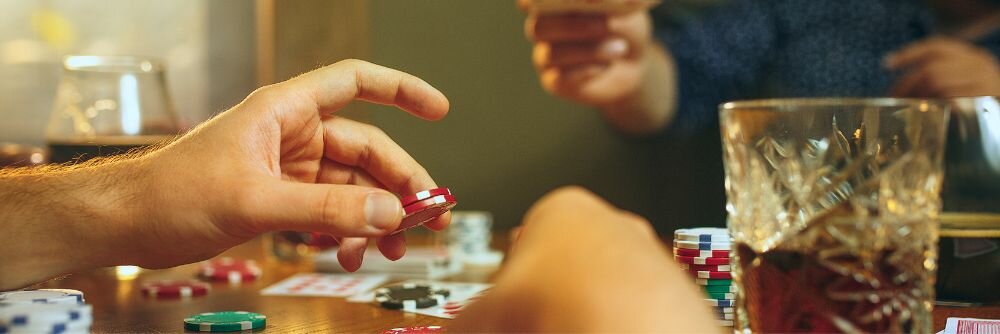
Showdown
The final stage of a hand where hands are shown, and the winner is determined based on the hand strength.
Slow roll
Purposely delaying showing down a stronger hand trying to tilt your opponent. Although not totally against the rules, this method is scowled upon by frequent players and is believed to be a poor form.
Soft playing
Yet another unjust strategy where a player intentionally plays their strong hands slow against another player to be sure that they do not lose too many chips.
Staking
This term is referred to paying for a player’s buy-in into a tournament or cash format game in trade for a part of his winnings. This technique is wildly popular online.
Straddle
This term is used for a blind bet placed by the player instantly to the left of the big blind, in the amount of double the big blind, letting the player act last before the flop. It is only permitted in cash format games, and while some rooms only let one straddle per round, other rooms might qualify each player up to the dealer to post the straddle, consistently doubling the prior amount.
Straight flush
The term is used for five successive cards of the same suit, for instance, 4s, 5s, 6s, 7s, and 8s.
Suited connectors
This refers to cards of the same suite, consecutive ranks or at least close in ranking.
Tilt
A term refers to a psychological state in which a player is no more capable of making sound decisions and acting based on emotions. It can be due to a bad beat, other players’ demeanour, or other reasons irrelevant to poker wholly.
Under the gun
The stands at the table that acts first before the turn, that is, the first player to the big blind’s left.
Value bet
A bet placed by a player holding what they consider to be the best hand in an attempt to pull some more value from their opponent.
Walk
When the player sitting in the big blind encounters no aggression as all folds to them and they pick up blinds and antes, they are said to be receiving a “walk.”
WSOP
Abbreviation for World Series of Poker, the enormous festival of poker tournaments that takes place every summer in Las Vegas.
Final Thoughts
This ultimate poker glossary is what one needs to learn the theoretical basics of the game. Once you are aware of these poker terms, you can now step onto online casino platforms which offer a range of poker game tables.
As there are a wide variety of poker games, make sure you are familiar with its rules and regulations. You can learn about the various formats of poker in our dedicated article.
Poker is considered a game of chances with a pinch of skills per taste. Awareness, observation, and the ability to bluff your opponents add more odds of winning to your pocket, but the odds are held more by the cards you got in your hand.
Play responsibly!
